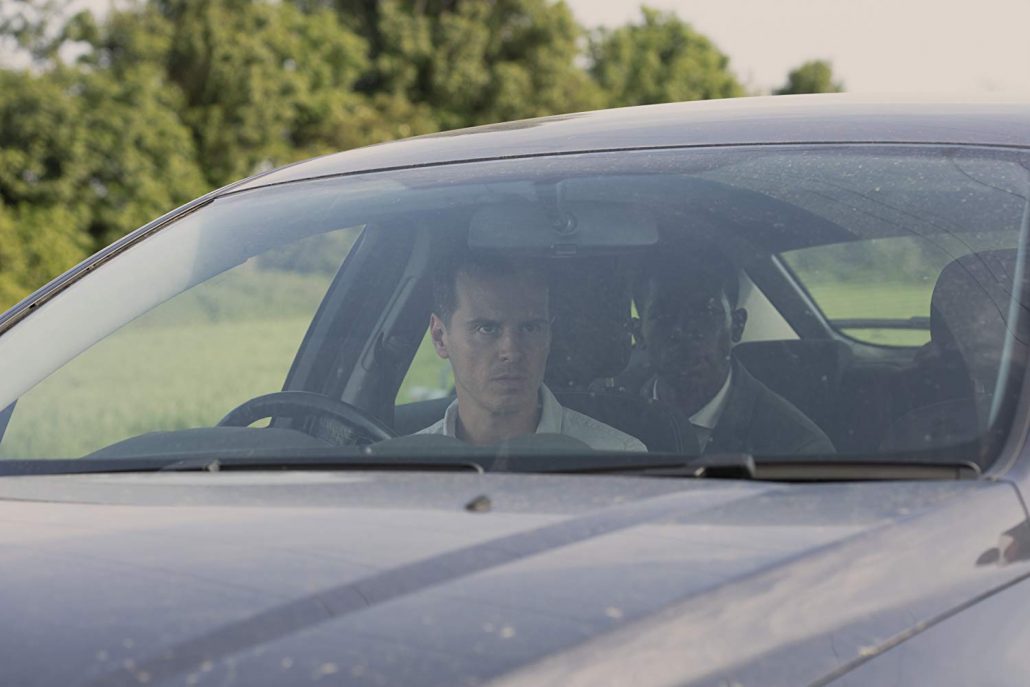All The World’s a Screen: ‘Black Mirror’ returns with harsher cultural critique

“All the world’s a screen,” and if anyone understands that best, it’s Charlie Brooker, creator and writer of the “Black Mirror” TV series.
Last week, Netflix released the anthology series’ fifth season. Although — so far — critics have not received the latest set of three episodes as positively as those of previous seasons, “Black Mirror” has not stopped its cultural critique of technology’s dangerous ability to mess with the natural order.
“Smithereens,” the second story in the fifth season, does this best for one main reason: It makes sure viewers know that the story is taking place right now. But before I get into the plot, a word of warning: Spoilers ahead!
One of the first things we see is a year — 2018 — an oddity in “Black Mirror,” which does not typically acknowledge exact temporal settings of its stories. “Smithereens” is purposefully set in 2018.
Soon after, we are introduced to the main character of the hour-long episode: Chris Gillhaney (Andrew Scott), a rideshare driver based in London.
Something’s off about this guy: He’s constantly meditating, calming himself down, and he always sets up his taxi in front of an office building for Smithereens, a fictional Facebook-Twitter-hybrid social media conglomerate. He is waiting for someone, someone who works at Smithereens to hop in his car.
Finally, a lowly Smithereens intern, Jaden Tommins (Damson Idris), steps into the car. Chris kidnaps him and holds him at gunpoint, demanding Jayden get Smithereens founder Billy Bauer (Topher Grace) on the phone to talk. Tensions rise as Chris, the cops and the media are caught in a stalemate: Unless Billy speaks to the angry, unpredictable Chris, Jaden will continue to be held hostage.
Another uncommon occurrence in a “Black Mirror” episode, the social indictment doesn’t come until later, it comes in the final twenty minutes of the episode.
Billy gets on the line with Chris, who tells the story of a car accident that killed his girlfriend and the other driver, who happened to be drunk. The blame was pinned on the drunk driver, but Chris knew the truth: He was checking a Smithereens notification while he was on the road. The guilt had eaten him up until he decided the only way to expiate the incident was to confess his sin to Bauer himself.
In other words, “Smithereens” is a really long “don’t text and drive” ad. But, it’s also much more — it’s a whole indictment on the “trending” culture we’ve built on Twitter, Facebook and every other platform.
Throughout the standoff, we see that everyone is talking about it on Smithereens; Chris and Jayden are trending worldwide.
The tension finally explodes when a sniper is authorized to shoot Chris. The first misses completely, but the second … well, the episode cuts to the credits before we can see the outcome. Before it completely cuts to black, however, we are shown quick snippets of people checking their phone after a notification comes in and then quickly moving on to their next task.
These snippets are eerie reflections of how our current culture treats tragedies and major events. If it’s done trending, we’re done caring.
We see the entire world through screens now. That’s good when we can have live updates on everything from a family members’ health to a major government election. Yet, as our consumerism worsens, the Internet — and all the entertainment within — becomes a space dedicated solely to attracting and holding its users’ attentions.
“Smithereens” is not about Chris’ tragedy so much as it is about the tragedy of how we would react to something like that really happening. The episode — written by Brooker himself — doesn’t even let us get away with pinning such attitudes on a fictional future population; this story is meant to take place in 2018 because it’s a reflection of what is happening now.
There’s a void left in not knowing how the sniper’s shot turned out, but that’s the point: All those people getting a notification in the end are aware of what happened, they got the news, but they don’t even take a second to let it sink in. They move right on with their lives as if nothing had happened.
When an event stops trending, when it loses the fight for our attention, it’s like nothing had ever happened. “Black Mirror’s” “Smithereens” wants us to feel that void and makes us consider if it’s really worth it to make all our world a screen.
Isa Uggetti is a junior writing about film. He is also the lifestyle editor of Summer Trojan. His column, “All the World’s a Screen,” runs every other week.

